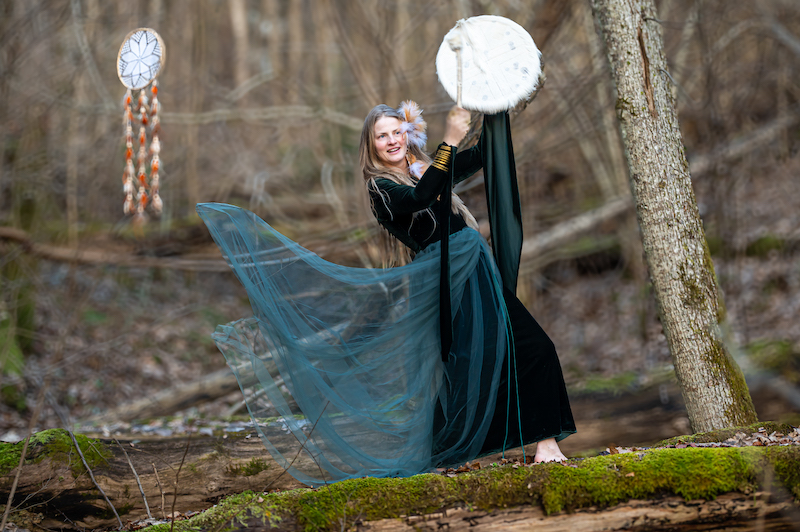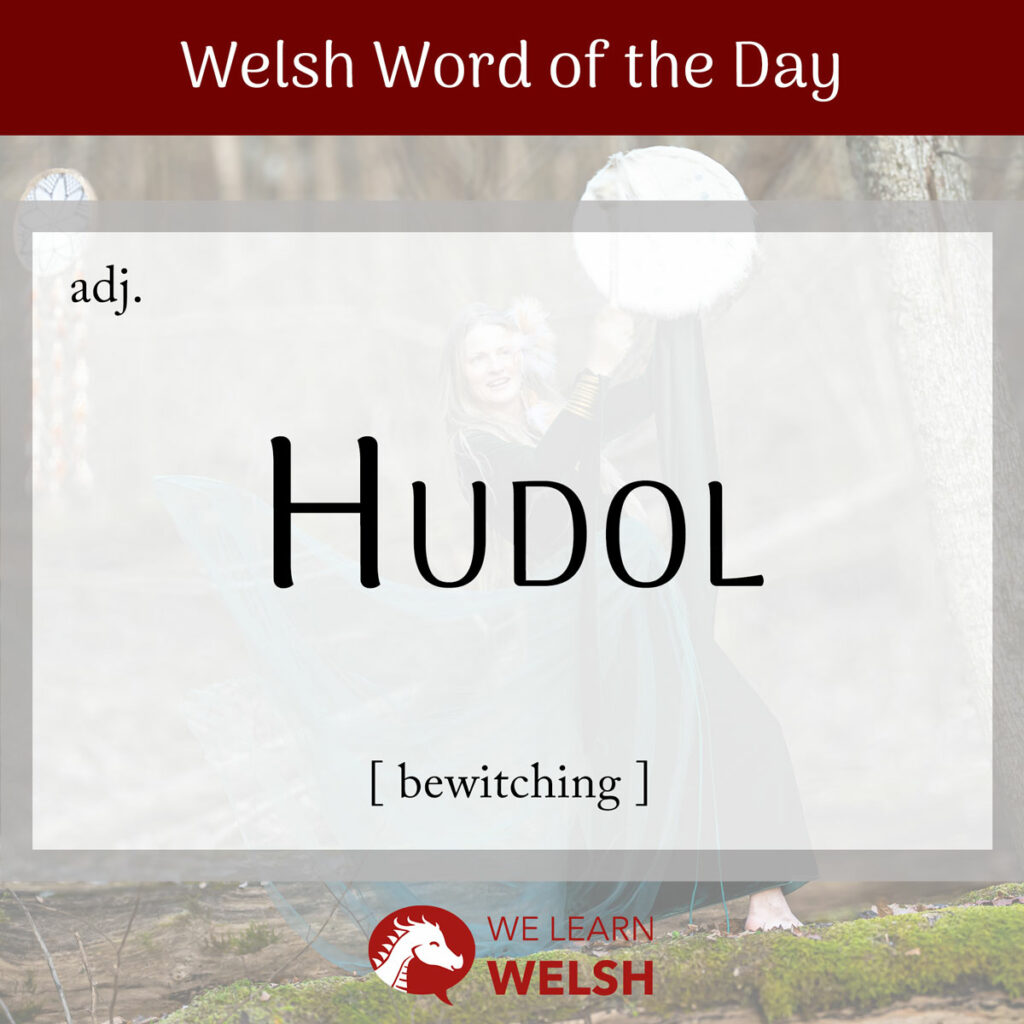The Welsh word hudol can be used in a variety of ways. Most simply, it means magical, a synonym of dewinol. But it’s also very often used to mean enchanting / bewitching, either in a literal way or to describe attractiveness. As an extension of this, people historically might have also translated it along the lines of illusory. Lastly, it’s even been used as a noun to refer to an enchanter.
hudol
bewitching / magical
If you’ve come across the word hud (magic) before, I’m sure you’ll have guessed that’s where hudol (and its synonym, hudolus) comes from! It’s also the origin of the verb hudo (to enchant), hudlath (a magic wand), and hudoliaeth, which is most often used simply as an equivalent of hud.
I would say that although it literally means magical, hudol gets used more often in its sense of bewitching or enchanting. This is because the word hud (magic) itself is often used as the adjective magical, such as in phrases like carped hud (magic carpet) or ffon hud (magic wand, like hudlath).
The unique nature of hudol lies in its combination of literal magic with descriptions of beauty and charm. To me, it really captures how being enraptured by the harddwch (attractiveness) of a person, place or sensation can really feel like being drawn under a spell.
There aren’t different forms of hudol used to compare just how magical something is. Instead, you simply say mwy hudol (more magical), mwyaf hudol (most magical), and mor hudol â (as magical as). It also doesn’t change depending on the gender or number of the noun it’s describing.
I’ve already mentioned dewinol and hudolus as synonyms of hudol, but it doesn’t stop there. Depending on the meaning, you could switch it out for:
- swynol = magical or charming
- cyfareddol = enchanting
- swyngyfareddol = relating to witchcraft
- dengar = alluring or attractive
- deniadol = alluring or attractive
- lledrithiol = illusory or enchanted
- twyllodrus = misleading

Given that it can also be used as a noun for enchanter, you could also consider it a synonym of words like dewin (wizard), dewines (sorceress), swynwr (spell-caster), consuriwr (conjurer) or gwrach (hag / witch). Many of these characters appear in Welsh mythology, not least the famous witch Ceridwen, known for developing a potion to give the taker awen (inspiration / wisdom).
Canaist ti’r gân ‘na’n hudol.
You sang that song bewitchingly.
These kinds of hudolion cast swynau (spells) on unsuspecting victims – though they may also create positive enchantments that bring blessings. In Welsh, the word for casting a spell is different depending on the connotations.
To cast a hurtful or negative spell is rheibio, or less commonly and more colloquially witsio. You could think of this as a translation of to curse – although there is a more specific word for this, too, which is melltithio. This is very dramatic, as it calls to mind mellt (lightning).
The alternative word swyno means to cast a swyn (spell) more generally, but tends to be used for benevolent spells, more like an equivalent of the English to charm or to enchant. Cyfareddu is a more long-winded synonym. The word denu means to attract or to bewitch.
All of these words are used independently – we wouldn’t say rheibio swyn, for example, but just rheibio. This is in contrast to English, in which we say to cast a spell.
The byd hudol (magical world) in Welsh mythology extends beyond spell-casters. Our folklore tells of the tylwyth teg (the fair folk), mysterious and often malevolent fairies who play tricks on humans, of various kinds of angenfiloedd (monsters) who haunt wild places, and of dark ysbrydion (spirits) who pass between here and other worlds.
Indeed, other kinds of worlds are one of the key preoccupations of Welsh chwedloniaeth (mythology / folklore). Particularly famous is Annwn, generally called in English the Otherworld. Annwn was thought of as an underworld like that which houses the dead in Greek mythology, but interestingly, the pre-Christian Welsh generally envisioned it as a paradwys hudol (magical paradise), an equivalent of the Irish Tirnannog.
Mae ganddi hi lygaid hudol.
She has bewitching eyes.
Not all uses of the word hudol relate to ancient enchanters, their lands and their sorcery. It can turn up in very ordinary contexts, like llusern hudol (magic lantern), madarch hudol (hallucinogenic mushrooms), or llysiau’r hudol (verbena flowers, associated with the supernatural in many cultures).
Indeed, perhaps hudol is even a good way of describing the Welsh language itself – bewitching and enticing with its beauty and literary heritage, but often deceptively tricky!

